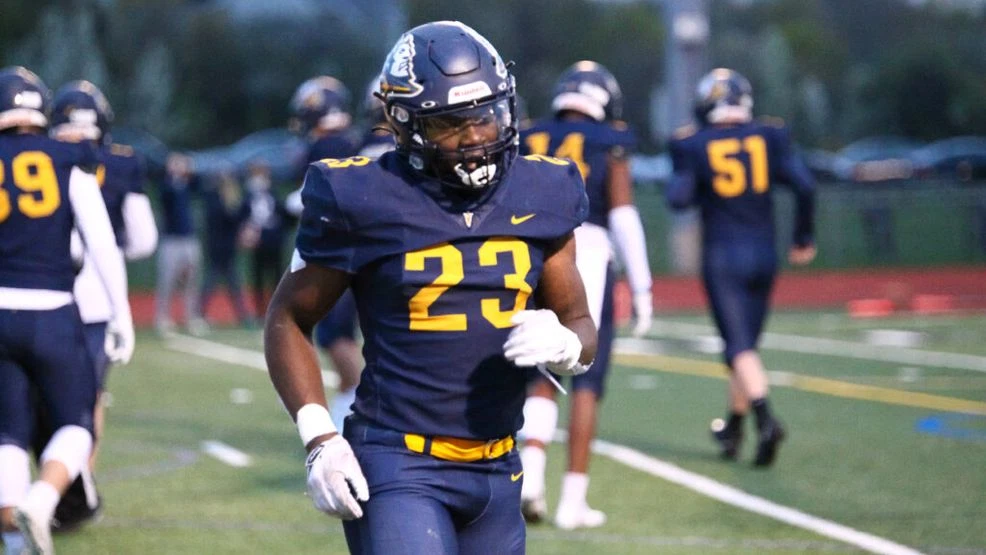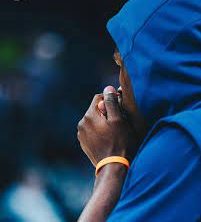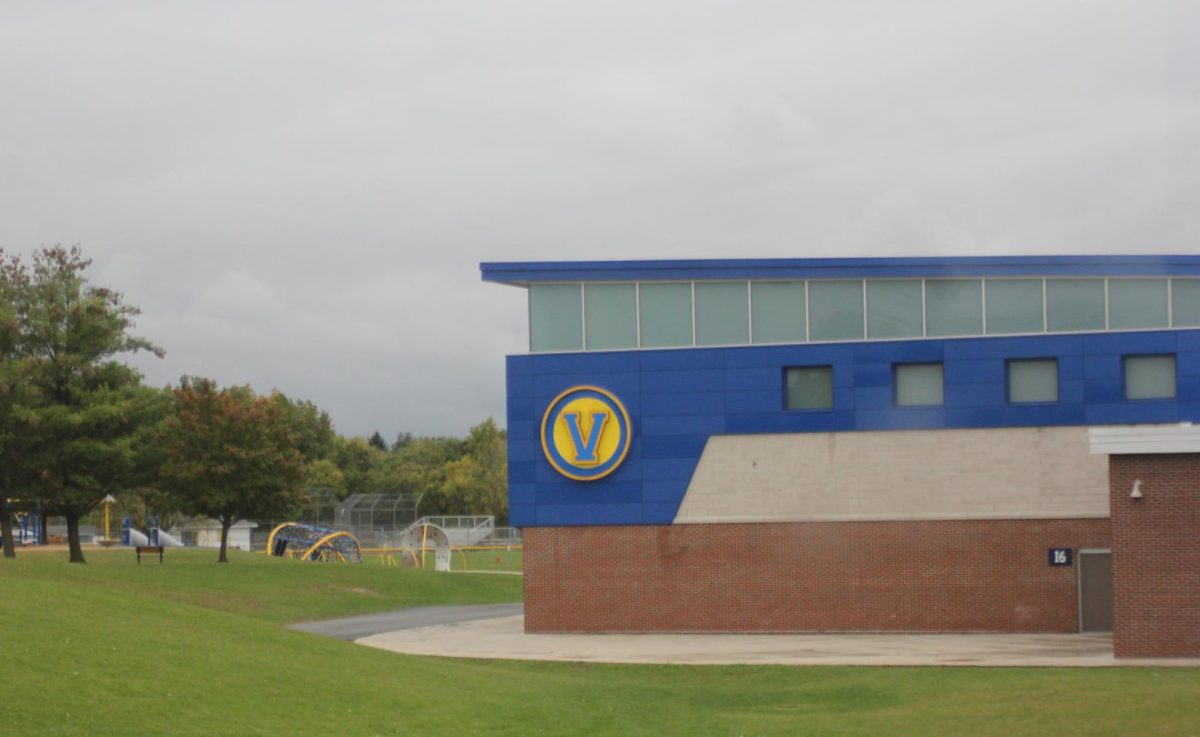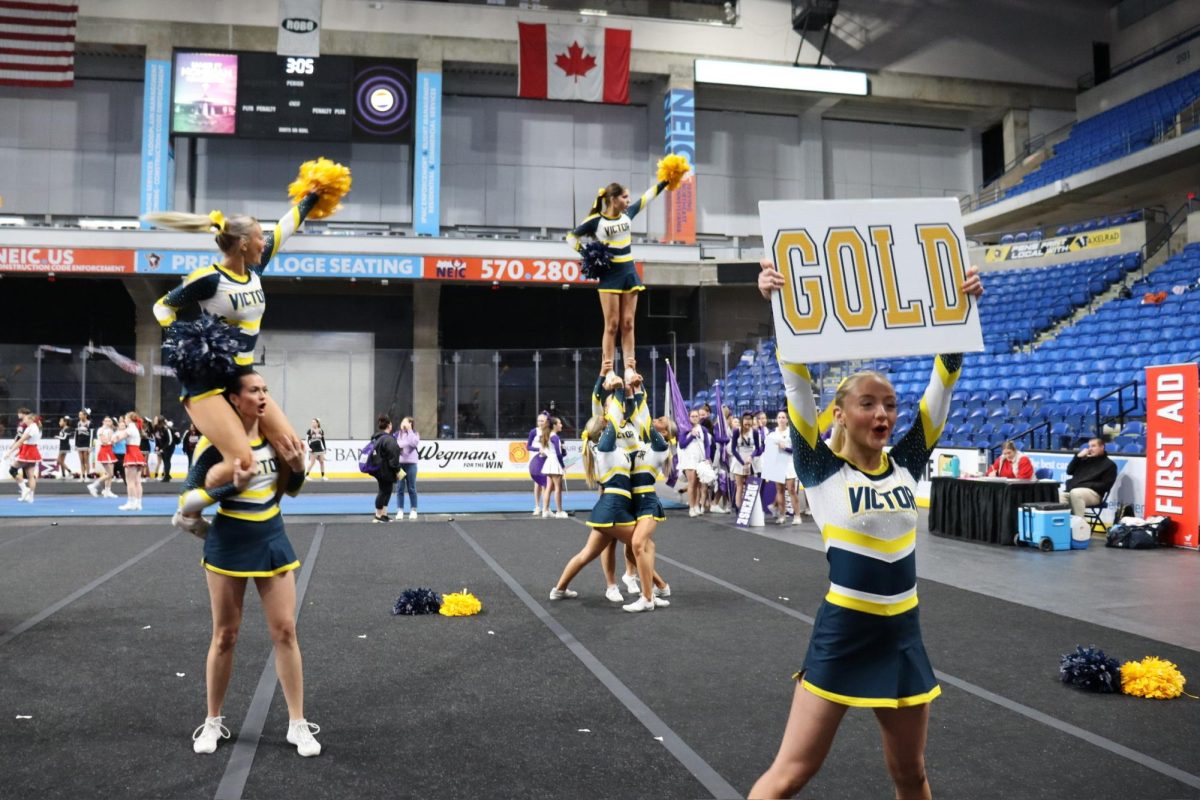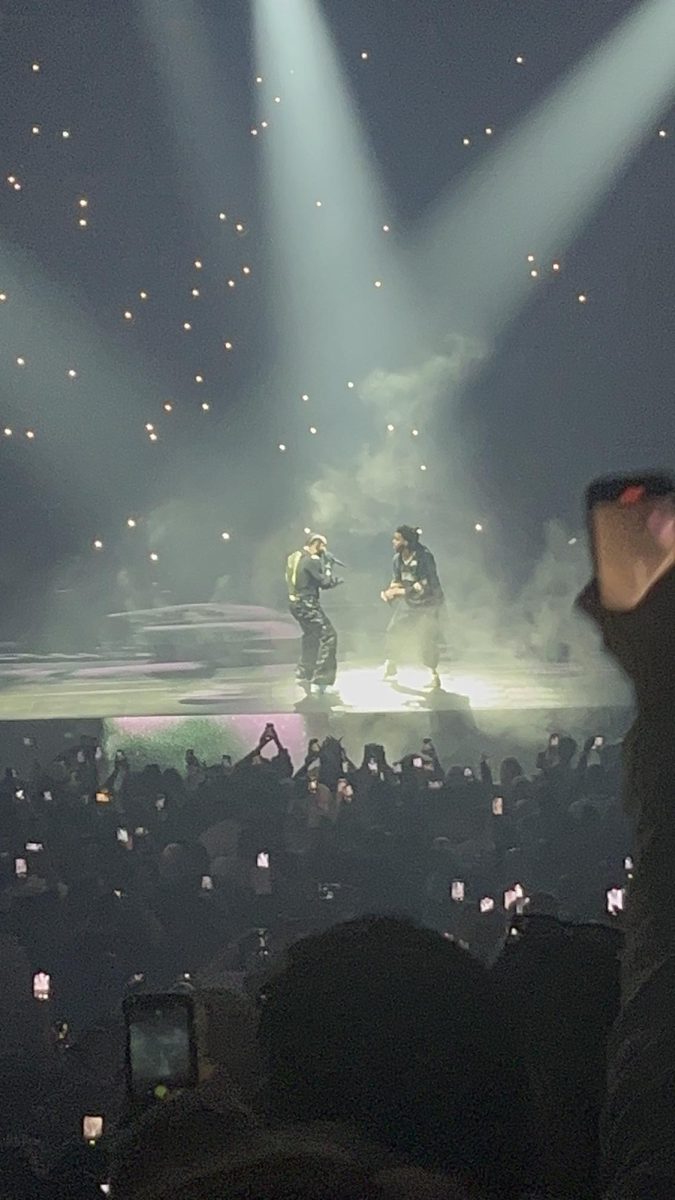For a long time, Victor has had a large number of student photographers. Some of these names include Shot By NJ, Kenadeerae photography, and Seager Flics, as well as many others. For a long time, it has been very easy to receive a media pass. You go to the Blue Devils website and fill out a form. However, this has recently changed. From now on, students will need to either be accompanied by a Yearbook advisor or Victor Voice Staff Member, or have a well recognized media agency. Student photographers see this as a negative change for student photography, but I wanted to get some other opinions on it. Due to this, I interviewed Mr. Denner, Mrs. Vongprachanh, and Mr. Weimer to see what they thought.
Mr. Denner is the head yearbook advisor, and was asked about this change. He thinks that this change will negatively affect the amount of photos we will be able to get. “This change created some challenges as far as getting candid photos of our athletes during competitions. We are lucky enough to get a lot of help from team photographers throughout the seasons, but I always think it’s better when the work comes directly from our students.”
He went on to talk about how this change would have happened due to liability issues with unsupervised students at sporting events, where something could go wrong, ending in injury or interference with the game, and this change prevents that. This change could also delay the yearbook since there will be less photos, the photos are what tell the stories in a yearbook.
Mr. Denner also said that it could cause some sports to get less coverage, since not all teams have a dedicated parent photographer. He also said how there are a number of student photographers interested in learning sport photography, and this limits the opportunity for them to do so. Learning how to take sports photos can be different from still life, since the objects aren’t still. This is a skill many photographers would like to know, and shooting your own school is the best practice. This might stunt the growth of new photographers who are limited to this new rule.
As a final question, I asked why he thought this change occurred. Mr. Denner said he thought it was “a mix between Section V regulations and a need to prevent unexpected issues on the sidelines of our games, competitions and matches.”
Mrs. Vongprachanh is the other yearbook advisor that I interviewed. She sees this as more of a positive change, since it shows the students the process of applying for a media pass, as well as allowing the yearbook advisors to work more closely with student photographers, allowing them to get better at photography. “It changed the way we, as a club, plan out media coverage for spring sports by making sure that our schedules as advisors align with the schedule of our student photographers.”
She went on,“We also needed to communicate more with the athletic department and coaches to assure that all parties know who will be on the field and who will be supervising the student as the game goes on. We are fortunate that we have staff and advisors that support our Victor athletes and were planning on attending games as spectators so that our yearbook photographers can have field access, however we will need to look ahead at fall and winter sports to schedule a set time and date for our photographers to have field access during games like football, soccer, swimming, indoor track and field, etc., where they are limited to taking pictures in the designated spectator area.”
She doesn’t think that this change will affect yearbook production, and will teach new photographers how the media process works in Section V. While learning how to apply for a Section V media pass is important for student photographers since they need to understand the process of applying for one, I do still think that it would also restrict a lot of students who are unaware of how to do it.
Continuing with this, I asked about how this will affect student photographers, she said, “I think this is a great learning opportunity for our student photographer to be able to have access to the field and take amazing action shots. It also allows us as advisors to know exactly which games our photographers are covering and work with them directly to help them improve their skills on photo editing programs.” After this interview, it opened my eyes to see how while this seems like a negative change, there are a lot of positives coming out of this. A lot more students will be able to learn the process of applying for a media pass through Section V, and students receiving direct help can boost their skills with editing, and learning the camera.
After interviewing the yearbook advisors, I asked the man behind the changes: Mr. Weimer. My first question was why did this change happen, Mr. Weimer said, “This decision was influenced by several key factors and made in collaboration with MCPSAC, Section V, and the NYSPHSAA. While the rules for credentialing media passes have not changed, we are now more actively enforcing the standard best practices recommended by our governing bodies.”
I wanted to see if he saw this as a harmful or a helpful change. Weimer explained, “This change is expected to enhance the management of interscholastic athletic events and promote equity across all programs. It also provides school clubs, such as Yearbook and Voice (The Victor Voice), with a clear and consistent process to ensure their members remain accountable and follow their advisors’ guidance. They just need to receive permission daily.”
This does make sense, since it streamlines the process for yearbook getting photos, since less people are allowed to take them, making finding photos for certain events easier. However, it also restricts the yearbook photographers from going to these games, since they need an advisor with them.
My final question was how do you see this change affecting student photographers. His response was, “Student photographers affiliated with Yearbook or Voice will simply need to obtain daily sideline credential approval from their advisors. All other individuals seeking media credentials must be affiliated with an officially recognized media agency, as outlined in Section V Media regulations.”
This means that students will need a qualified person, either Victor Voice or Yearbook staff, to be around them at all times while on the field. With this, now student photographers not affiliated with the in school programs must have their own media agency, which many casual photographers don’t have or want.
In the end, I feel concerned about this change. Despite the positives emerging from it, I feel like a lot of sports and events will lack the amount of photos that it had before. Also, it will limit the opportunities that new photographers have at Victor. This change will be an adjustment for next year, but only time will tell how the change truly affects Victor’s Student Photography.




